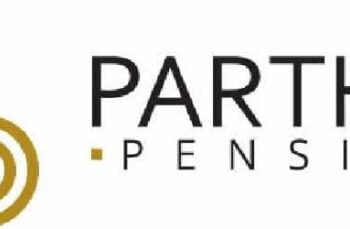What Happens to Pension Benefits When a Contributor Dies?
Pension schemes are a cornerstone of financial security for millions of Nigerian workers, offering reassurance for a comfortable retirement after years of service. But what happens when a pension contributor dies before or after retirement? For many families, the uncertainty surrounding the fate of pension benefits can be both distressing and confusing. This article explores the laws, procedures, and common practices regarding the payment and administration of pension benefits upon the death of a contributor under the Nigerian pension system.
Nigeria operates the Contributory Pension Scheme (CPS), introduced by the Pension Reform Act (PRA) of 2004 and further amended in 2014. The scheme is mandatory for employees in the public service and private organizations with at least three staff members. Under the CPS, both employer and employee contribute to a Retirement Savings Account (RSA) managed by Pension Fund Administrators (PFAs), regulated by the National Pension Commission (PenCom).
What Happens When a Contributor Dies?
The unfortunate event of a contributor’s death does not mean the end of their hard-earned pension savings. It is also important to clarify that beneficiaries are legally entitled to receive pension benefits and differ from the Next of Kin(s) indicated on the RSA details of the deceased. While the Next of Kin serves as a point of contact or representative for administrative purposes, only designated beneficiaries (as stipulated by official nomination forms or by law) are eligible to claim and receive funds from the RSA. Families should not assume that the Next Kin automatically inherits pension benefits, underscoring the need to carefully complete beneficiary nominations and keep them current. The fate of the pension benefit depends on the timing of the contributor’s death whether it occurs before or after retirement and the status of their RSA.
Death Before Retirement
If a contributor dies before retiring or before accessing their RSA, the total amount in the contributor’s RSA, including accrued investment incomes, becomes available to their legal beneficiaries. The PRA 2014 and PenCom guidelines govern the process for the identification of beneficiaries and disbursement of benefits.
Nomination of Beneficiaries
Upon opening an RSA, contributors are required to nominate next of kin and beneficiaries, usually through forms provided by the PFA. This nomination is critical because it determines who will be eligible to claim the benefits in the event of the contributor’s death.
Application and Documentation
Upon the contributor’s death, the nominated beneficiaries or next of kin must formally apply to the deceased’s PFA for the release of the pension funds. The required documents typically include:
Death certificate of the contributor
Letter of Administration (if there is no valid Will)
Valid means of identification for the beneficiaries
Bank account details for payment
Birth certificate of the deceased (in some cases)
Proof of relationship to the deceased (such as a marriage certificate or affidavit)
The PFA then verifies the documents and initiates the process of transferring the funds to the legitimate beneficiaries.
Dispute Resolution
Disputes can arise, especially where multiple claimants present themselves or where the deceased did not clearly nominate beneficiaries. In such cases, the PFA may require a Letter of Administration from a probate court, which officially recognizes the legal beneficiaries of the estate.
Death After Retirement (While Receiving Pension)
If a contributor dies after retirement while already receiving pension payments, the treatment of their pension benefits depends largely on the mode of benefit payment that was chosen at retirement.
Programmed Withdrawal
Many retirees opt for “programmed withdrawal,” where pension payments are made monthly until the RSA is depleted or until the retiree passes away. If the retiree dies before exhausting the RSA, the balance is paid to the beneficiaries.
Annuity
Alternatively, a retiree may choose a “retirement annuity,” whereby an insurance company pays them a guaranteed income for life. If the retiree chose an annuity with a guaranteed period, and they die within that period, the benefits may also pass to beneficiaries or the estate for the remainder of the guaranteed term.
Estate Laws and Probate Process
Where there is no clear nomination of beneficiaries or disputes arise, the payment of pension benefits may be subject to the general laws on inheritance and probate in Nigeria. The Letter of Administration or Will becomes critical here, as PFAs will only release funds to beneficiaries recognized by law.
Taxation and Deductions
Pension benefits are generally tax-exempt in Nigeria; thus, the funds transferred to beneficiaries are not subject to income tax. However, any debts or loans owed by the deceased contributor to their employer may be deducted from the RSA before disbursement to the beneficiaries.
Role of Pension Fund Administrators (PFAs) and PenCom
PFAs play a central role in managing RSAs and ensuring that contributors’ wishes regarding their pension benefits are followed after death. PenCom provides regulatory oversight, issues guidelines, and can be petitioned in cases of disputes or delays.
Common Challenges and Practical Steps for Families
Families often face hurdles in accessing pension benefits, ranging from bureaucratic delays to legal disputes among potential beneficiaries. To minimize challenges, contributors are encouraged to:
Ensure their beneficiary nominations are up to date and accurately reflect their wishes
Inform their family members of their chosen PFA and pension arrangements
Keep relevant documents (e.g., RSA statements, beneficiary forms) in an accessible place
Beneficiaries should be prepared with all required documents and promptly engage with the deceased’s PFA to avoid unnecessary delays. The death of a pension contributor can be an emotionally and financially trying time for families. However, Nigeria’s pension regulations are structured to ensure that contributors’ savings are not lost but are transferred to their loved ones according to the law. Staying informed and following the correct procedures are the keys to smooth and timely access to these benefits.













